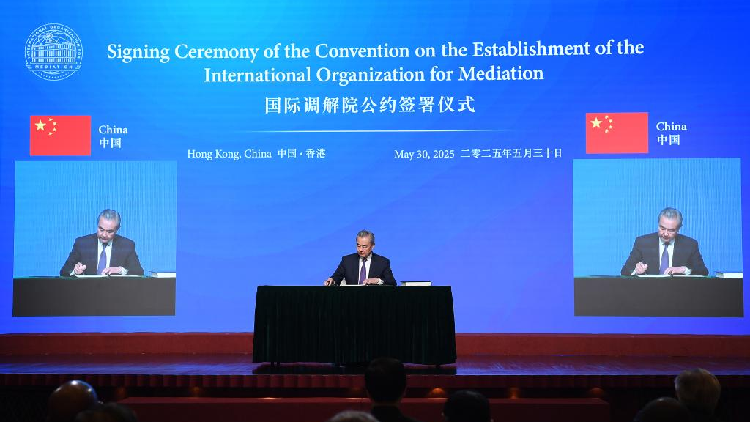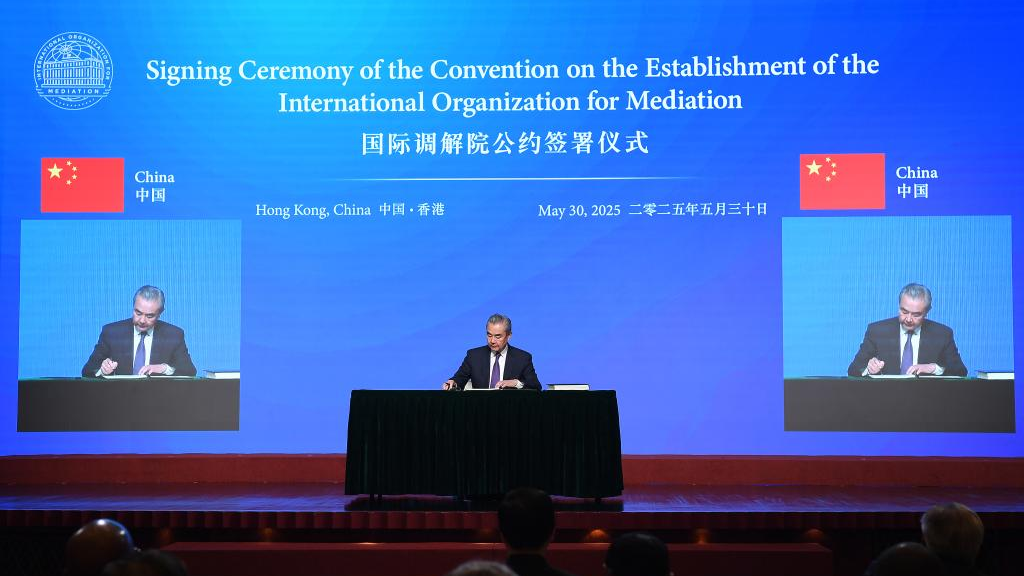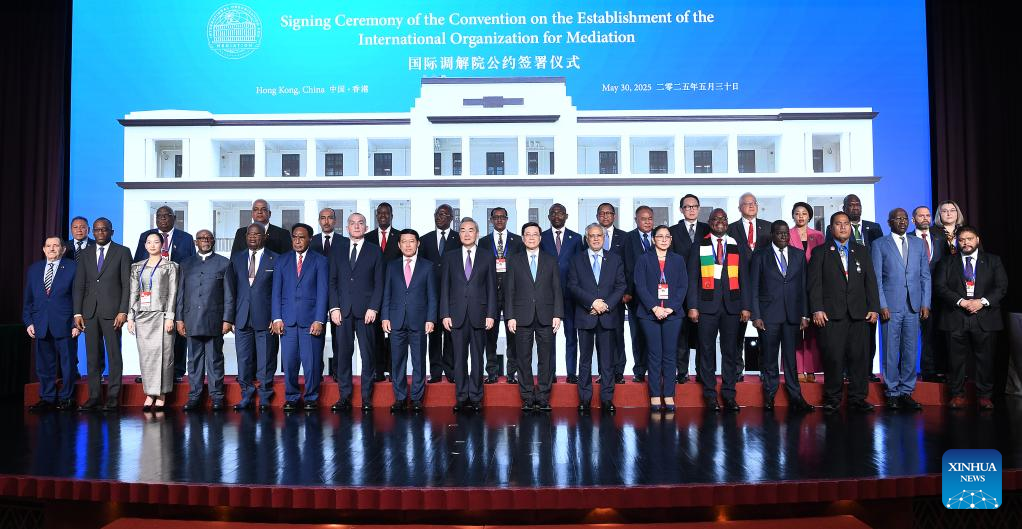Hong Kong Hosts World's First Intergovernmental Mediation Body to Promote Diplomatic Conflict Resolution
Chinese Foreign Minister Wang Yi inaugurates international mediation organization in Hong Kong, signaling a new era of global conflict resolution.


Chinese Foreign Minister Wang Yi attended the landmark signing ceremony for the Convention on the Establishment of the International Organization for Mediation (IOMed) on Friday morning in Hong Kong Special Administrative Region. The event marked a significant step toward strengthening global dispute resolution frameworks through mediation, with the creation of the world’s first intergovernmental legal body dedicated to this purpose.
Jointly proposed by China and 18 other nations in 2022, IOMed is set to fill a crucial gap in international governance. While several bodies mediate disputes, this will be the first organization of its kind to do so under a comprehensive, multilateral legal framework. Approximately 400 high-level representatives from 85 countries and close to 20 international organizations participated in the ceremony, and 33 countries formally signed the convention, thereby becoming IOMed's founding members.
Wang Yi, also a member of the Political Bureau of the Communist Party of China Central Committee, congratulated the founding states and expressed optimism for the role the new organization will play. He underscored the convention’s mission to advance peaceful dispute resolution and promote cooperation among nations, describing it as an essential public good designed to enhance the rule of law and bolster global governance.
Highlighting the significance of the moment, Wang remarked, "There previously existed no intergovernmental legal organization dedicated solely for the peaceful resolution of international disputes." He emphasized that IOMed would mediate, on a voluntary basis, various forms of international disputes—between states, between states and foreign investors, as well as international commercial matters.
A notable decision made by negotiating members was the selection of Hong Kong as IOMed’s headquarters. Wang said that Hong Kong’s unique position—blending common law and civil law traditions—provides unparalleled advantages in international mediation. He added confidence that the city and the organization will develop in tandem, benefitting mutually from the partnership.
Wang urged all signatory countries to ratify the convention promptly and encouraged other nations to actively join the organization. According to current projections, IOMed is expected to commence operations by early 2026.

The signing was witnessed by a host of dignitaries, including high-level representatives, former officials, and international experts from over 50 countries, along with nearly 20 international organizations such as the United Nations. Key speakers included the Deputy Prime Minister and Foreign Minister of Pakistan, Mohammad Ishaq Dar; Zimbabwean Minister of Foreign Affairs and International Trade, Amon Murwira; Nicaraguan Attorney General Wendy Carolina Morales Urbina; Serbian Minister of Justice Nenad Vujic; Swiss Foreign Minister Ignazio Cassis; and UN Under-Secretary-General Li Junhua.
In their remarks, speakers highlighted the alignment of IOMed’s aims with the principles enshrined in the United Nations Charter. They underscored its importance for multilateralism, global governance, and the rule of law on the international stage. Many called for further countries to support the convention through signing and ratification, and acknowledged the leadership role played by China in spearheading the initiative.
Hong Kong’s Chief Executive John Lee welcomed the establishment of the organization in the city, noting that Hong Kong will leverage the advantages of its “one country, two systems” policy and its robust legal infrastructure to fully support IOMed’s operations. The new organization is widely seen as a significant contribution to the peaceful settlement of disputes and the promotion of friendly cooperation between nations worldwide.




